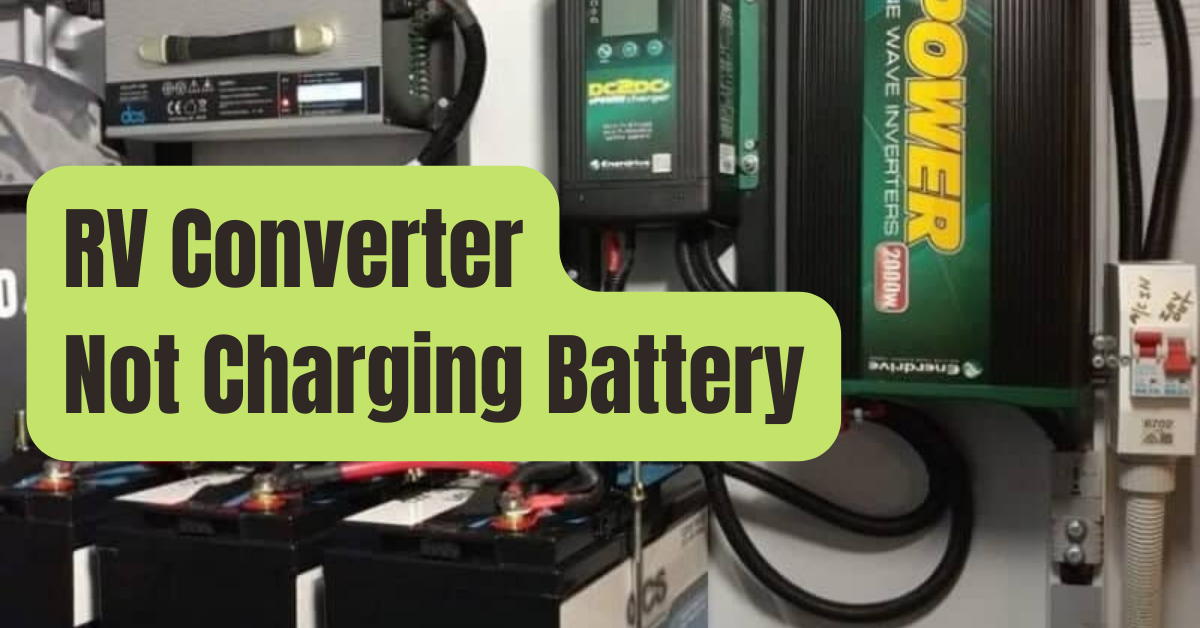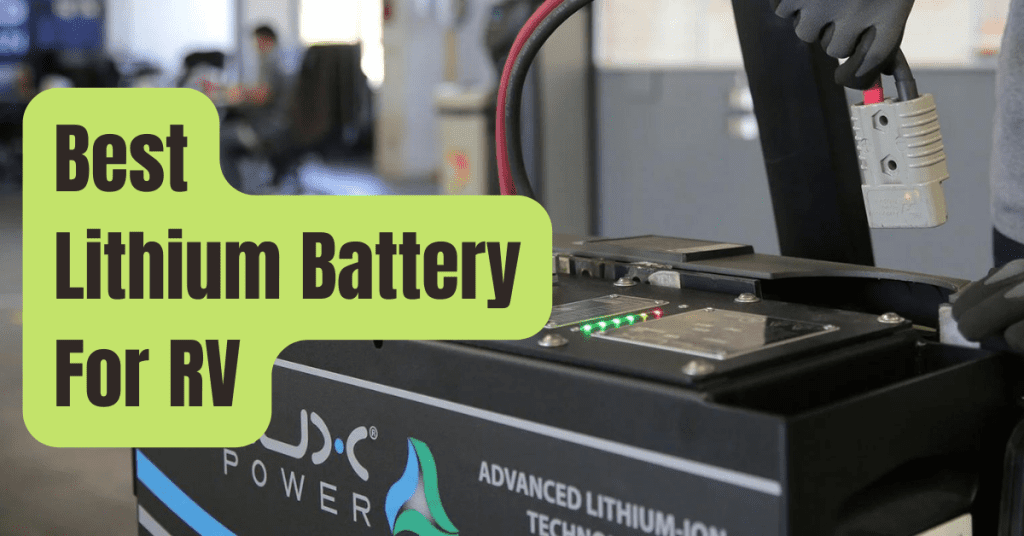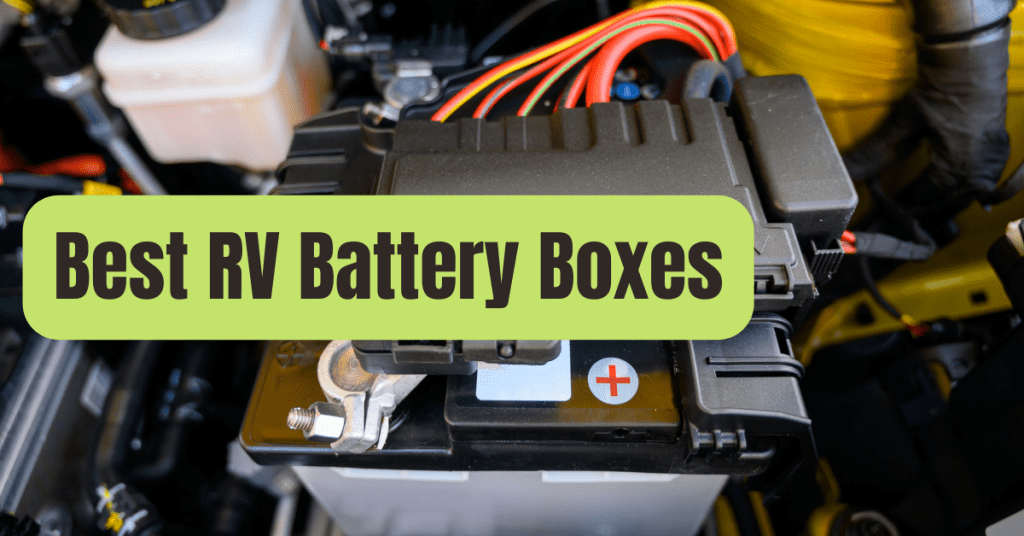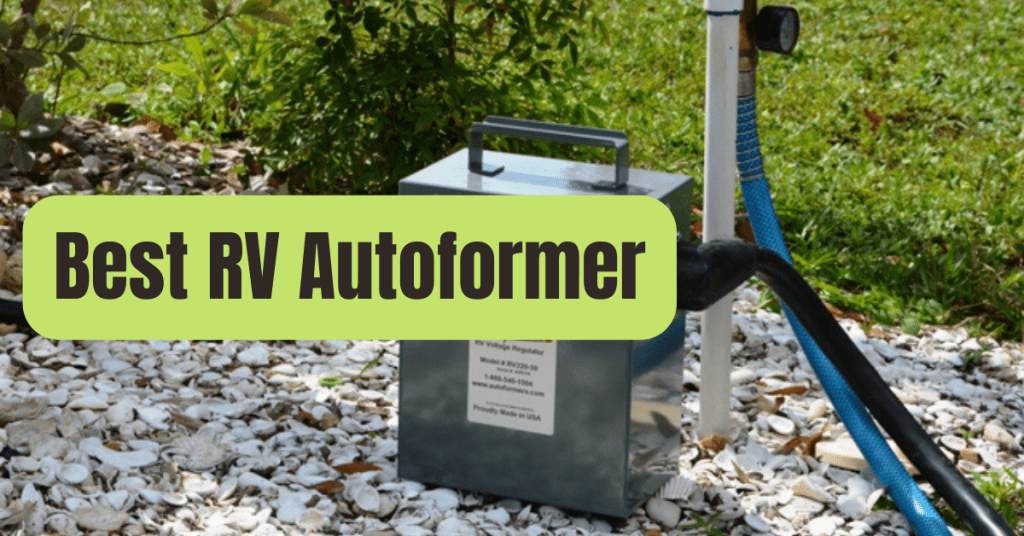The converter in your RV is an important part of the onboard electrical system.
Unfortunately, with time, this smart technology might develop issues.
When the RV converter fails to charge the onboard batteries, it is one of the first symptoms of a problem.
If your RV’s converter isn’t working, a short check of essential systems will help you diagnose the issue and identify the proper solution.
Some of the most typical reasons why your RV converter isn’t charging the batteries from shore power are as follows:
- Battery connectors that have corroded
- The batteries’ capacity to keep a charge is deteriorating.
- A cooling fan failure in the conversion
- The converter’s heat sensor has failed.
- A diode or other circuit board component has failed.
- The circuit board itself has corroded.
- A circuit breaker or fuse has tripped.
To correctly analyze the issue with your RV converter and discover why it isn’t charging the batteries, take a closer look at what a converter works.
What Is The Purpose Of An RV Converter?
An RV converter converts 110 volt AC from a source such as shore power at a campground to the 12-volt onboard RV batteries.
This entails switching from AC to DC current.
This is in contrast to the RV’s inverter, which converts DC electricity from the batteries into AC power, which is utilized by many common appliances such as your RV’s microwave.
When your RV’s converter is operating correctly, the voltage readout should be between 110 and 130 volts.
This will result in a reading of 11 to 13 volts at the onboard batteries.
On a multi-meter, if you observe figures that are fewer than this, or that are mysteriously higher, there is a significant issue with your converter.
You may either take the effort to diagnose and repair it yourself, or if you have the funds, you can just replace it entirely.
What Is The Price Of A New RV Converter?
If you have a problem with your RV converter, you may be tempted to just buy and install a new one.
Regrettably, the cost of entirely replacing an RV converter varies greatly.
If you try to install it yourself and discover an electrical problem later, your RV insurance carrier may refuse to pay for the repair.
It also has the potential to nullify that component of your warranty.
Even after you’ve paid for the component, you should look for a qualified and certified installation.
How To Fix 8 Reasons Why Your RV’s Power Converter Isn’t Charging The Batteries
If you’re handy and have an electrical multimeter or voltage meter on hand, you may be able to figure out why your RV converter isn’t charging the batteries.
You may even be able to finish the repair yourself in certain circumstances.
The troubleshooting procedures below will assist you in determining what the issue or problems with your RV’s converter or batteries are.
#1. Corroded Battery Connections Are Number One.
If your RV converter isn’t charging your batteries when connected to shore power, check the contact posts of your RV batteries.
A buildup of greenish or white corrosion may sometimes cause the batteries to be unable to get a charge or only receive a small charge.
It’s possible that it’s not even a genuine technical issue.
Corrosion might simply be preventing the RV’s electrical system from connecting properly.
Check And Clean The Batteries To Resolve This Issue
Cleaning the battery posts and connecting hardware is required.
This necessitates:
- 2 teaspoons baking soda + 2 tablespoons water
- To make a thick paste, combine all of the ingredients in a mixing bowl.
- Disconnect the power and ground leads from the RV batteries with care.
- Use an old toothbrush or a tiny wire brush to apply some of the paste.
- Scrub the battery connections and attachment parts gently.
- Allow 5 to 10 minutes for the paste to set.
- Using a clean paper towel, gently wipe the terminals and components.
- Reassemble the parts.
After you’ve cleaned the battery terminals and components, you’ll need to see whether the batteries can really retain a charge.
#2. The Batteries’ Capacity To Hold A Charge Is Degrading
If your batteries are clean and in good condition, the next step is to test their capacity to keep a charge.
To achieve this, you’ll need to connect them to a battery charger for several hours to fully charge each battery.
After that, unplug them from the RV.
Your electrical system is effectively isolated as a result of this.
If you check the batteries again an hour later using a multimeter or voltage meter, they should still be completely charged.
If the voltage readings are dropping, it’s most likely a battery issue.
The problem battery will almost always need to be replaced.
To Remedy This, Use A Voltage Or Multimeter To Make Sure The Batteries Are Holding A Charge.
The batteries will need to be replaced with fresh or reconditioned 12-Volt RV batteries.
If you have the time, you may be able to locate a battery expert who can recondition your batteries for a nominal fee.
This necessitates opening the sealed battery and dealing with components that aren’t suitable for everyday use.
If the batteries’ voltage remains constant at maximum charge, it’s a converter problem.
Additional troubleshooting will be required.
#3. A Cooling Fan Failure In The Converter
Examine the converter for any symptoms or odors of burnt wires or other internal problems.
A typical cause of converter issues is the converter fan.
In order to keep the internal components cool, the fan should be turned on on a regular basis.
The converter might overheat if the fan fails, possibly damaging components or causing shorts in the system.
Connect the multimeter to the power supply for the power fan.
You’ll need to figure out what’s causing the issue if it’s not receiving enough current.
Inspect The Converter Fan To Solve A Situation Like This.
The converter fan will need to be replaced.
This necessitates locating an identical replacement component.
The converter fan must then be manually replaced by opening the housing.
#4. A Thermal Sensor Failure In The Converter
If the converter fan is getting electricity but still feels or smells warm, use the multimeter to check the temperature sensor.
A faulty temperature sensor might cause the fan to not turn on, causing harm to the internal components.
To Resolve This Issue, Examine The Thermal Sensor On The Rv Converters.
The thermal sensor will need to be replaced with the manufacturer’s identical replacement component.
You may be able to repair a broken converter fan or a malfunctioning temperature sensor.
It is, however, a little more difficult than changing a converter fan.
Again, you may want to consider hiring a professional installer to find the right component and install it according to the manufacturer’s instructions.
#5. A Diode Or Other Circuit Board Component Fails
A surge of electricity from the RV park’s shore power may sometimes trip a breaker or fuse.
Make sure each one is in excellent functioning condition by double-checking it.
It’s possible that the breaker or fuse is faulty and needs to be changed.
If there isn’t a visible defect in the circuits, you should test each one separately.
Simply switch off each circuit breaker or remove each fuse.
Then, for each circuit, turn on the light switches or appliances as directed.
You can rule out a circuit breaker issue if they come on when you flip the breaker to the “On” position or insert the fuse.
It might be a faulty fuse or a burnt out circuit breaker if the relevant circuits in the RV aren’t coming on as they should.
To Resolve This Issue, Check The Fuse Box Or The Circuit Breaker.
A blown fuse is simple to repair on your own.
A burned-out circuit breaker, on the other hand, will need a full replacement and rewiring.
It’s possible that the panel box will need to be updated as well.
You’re right on the edge of what the ordinary do-it-yourselfer can manage here as well.
If you do need to repair a circuit breaker, you should choose an electrical contractor that is licensed and insured.
#6. Corrosion On The Circuit Board Itself Is Number Six.
This is a little more technical, and if you don’t know how to use tiny hand tools, it may not be something you want to do on your own.
This will need the removal of the exterior housing.
This normally requires unscrewing a few small screws or releasing a few small metal clips.
If you see a flaky white material on your circuit board, you’re probably dealing with corrosion.
To Resolve This Issue, Examine The Circuit Board Of The Rv Converter.
You’ll need to clean the rusted circuit breaker with care.
The following are the measures to take:
- Disconnect your RV converter from all electrical sources.
- Mix thoroughly 1 teaspoon pure baking soda in 12 ounces of water
- Wipe the rusted material away using a cotton swab or a clean paper towel.
- Allow the circuit board to air dry completely after drying it with another clean paper towel.
- Re-establish power
#7. Diode and Resistor Issues
A lot of the work of converting AC power to DC voltage is done by resistors and diodes.
It’s conceivable that a resistor or diode burnt out or was destroyed by excessive heat if there was an issue with the converter’s fan or thermal sensor.
When this occurs, the burned-out component will frequently seem to be different from the other components on the circuit board.
To Resolve This Issue, Follow These Steps:
- A soldering iron and some expertise doing electrical repairs are required.
- The solder holding the burned-out resistor or diode in the circuit board may then be softened.
- Then you can replace it with an exact match.
- Even so, you should probably hire a professional electrician for this.
#8. A Problem with Shore Power
The shore power supply from the RV pack might sometimes be the cause of the issue.
Make sure there aren’t any symptoms of a burned-out outlet or any problem on the power post.
Even something as basic as a bent prong or a broken socket might prevent AC current from reaching the converter.
To Resolve This Issue, Follow These Steps:
You’ll need to speak with the RV park’s administration about the problem.
Most have an on-site handyman who can help with any issues that arise.
They may even offer you an alternative campground rather than spend time and money fixing an issue with the shore power outlet.
Conclusion
It’s a tremendous pain when your RV’s converter fails to charge the batteries.
If you’re staying at an RV park, you may be able to acquire alternative AC power, or you might do some self-troubleshooting.
The ability of the battery to accept and keep a full charge is a critical initial step.
It’s also a time-consuming process.
As a result, while you’re charging the batteries, you may inspect the RV converter.
You may be able to replace the cooling fan or the thermal sensor with an identical replacement component if they fail.
Even if it’s replaced, the excessive heat that built up within the RV converter might have destroyed diodes, resistors, and other components.
The 12-volt RV batteries may be completely charged by the time you finish these instructions and check the breaker box.
This enables you to put your finest practices to the test.
You may need to replace one or more of your RV batteries if they are unable to retain a charge.
The majority of current RV batteries are sealed and cannot be serviced by the average person.
If you discover that your converter is broken beyond repair, you will need to seek expert assistance.
A trained specialist can diagnose the issue, locate the necessary replacement components, and finish the repair correctly the first time.










